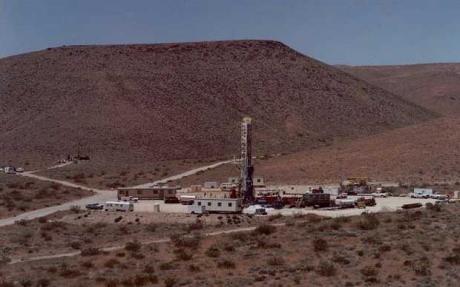
By Wayne Barber, Chief News Analyst, GenerationHub
In a much-anticipated decision, the U.S. Court of Appeals for the District of Columbia Circuit has ruled that the Nuclear Regulatory Commission (NRC) was wrong to stop reviewing the application for the proposed Yucca Mountain spent fuel site in Nevada because it lacked funding to finish the job.
In a two-to-one decision, the appeals court panel decided to take the unusual step of issuing a “writ of mandamus” against a federal agency. The legal term means commanding an official to perform a “ministerial act” that the law recognizes as an absolute duty.
So barring some action by Congress, NRC must resume the Yucca Mountain review.
The ruling is not a surprise. The court panel's majority said in an August 2012 filing that it would probably issue a mandamus finding if Congress took no further action - either allocating funds for the Yucca Mountain review or relieving NRC of its duty to continue with the case.
“At the behest of the Commission, we have repeatedly gone out of our way over the last several years to defer a mandamus order against the Commission and thereby give Congress time to pass new legislation that would clarify this matter if it so wished,” the majority said in its decision.
“At this point, the Commission is simply defying a law enacted by Congress, and the Commission is doing so without legal basis,” the court majority held. “…But unless and until Congress authoritatively says otherwise or there are no appropriated funds remaining, the Nuclear Regulatory Commission must promptly continue with the legally mandated licensing process.”
Chief Judge Merrick Garland issued a dissenting opinion. Mandamus is a “drastic and extraordinary remedy reserved for really extraordinary causes,” Garland said.
The D.C. Circuit has denied such an action in the past “when an agency has missed a statutory deadline by far more than the two years that have passed in this case,” Garland wrote in his dissent.
“Unfortunately, granting the writ in this case will indeed direct the Nuclear Regulatory Commission to do “'a useless thing,'” Garland wrote. “The NRC has not refused to proceed with the Yucca Mountain application. Rather, by unanimous votes of both the Commission and its Atomic Safety and Licensing Board, it has suspended the application proceeding until there are sufficient funds to make meaningful progress,” according to the dissent.
Majority: NRC faces legal mandate
The majority saw things differently. NRC claims that Congress has not yet appropriated the full amount of funding necessary for it to complete the licensing proceeding. “But Congress often appropriates money on a step-by-step basis,” the majority said.
“Federal agencies may not ignore statutory mandates simply because Congress has not yet appropriated all of the money necessary,” the court said. NRC is under a legal obligation to continue the licensing process and has at least $11.1m in appropriated funds, “a significant amount of money," the court said.
NRC might or might not be right when it surmises that Congress won't appropriate enough money in the future to finish the application work. “Regardless, an agency may not rely on political guesswork about future congressional appropriations as a basis for violating existing legal mandates,” the majority said.
The majority also found that the executive branch could not assert “prosecutorial discretion” as a justification for not going forward with the Yucca Mountain license case.
The case involves the Nuclear Waste Policy Act, which was passed by Congress and then signed by President Reagan in 1983. That law provides that NRC “shall consider” the Department of Energy's (DOE) license application to store nuclear waste at Yucca Mountain and “shall issue a final decision approving or disapproving” the application within three years of its submission, the court said.
The Obama administration decided early on that it did not want to continue to pursue a nuclear waste repository at Yucca Mountain. But the license application was filed by DOE months before President Obama took office, so critics have argued that NRC could not just walk away from the license review.
Petitioners include the states of South Carolina and Washington, as well as entities and individuals in those states. Nuclear waste is currently stored in those states in the absence of a long-term storage site such as Yucca Mountain.
The case is Re: Aiken County and other petitioners' No. 11-1271.
Subscribe to GenerationHub
Copyright © 2013: PennWell Corporation Subscribe to http://www.power-eng.com
http://www.power-eng.com/articles/2013/08/nrc-violates-law-in-yucca-delay-court-says.html